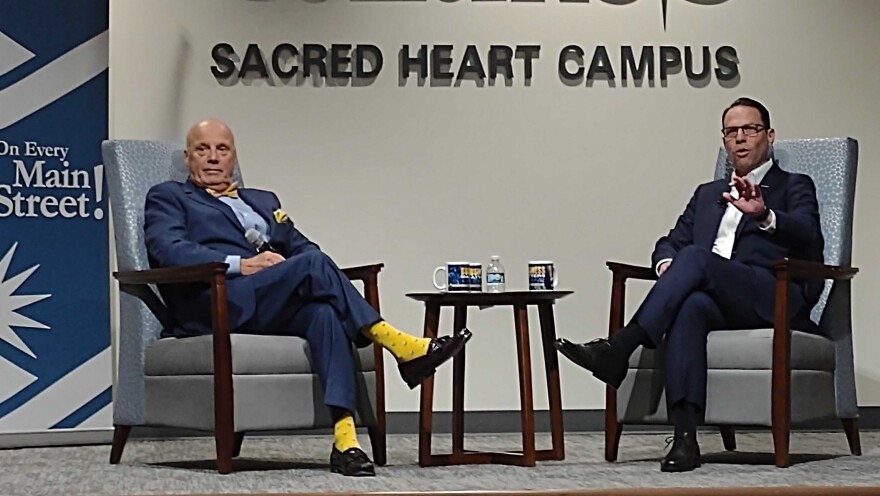ALLENTOWN, Pa. — Months after a deal to create a state school voucher plan crumbled, Gov. Josh Shapiro reiterated his desire to make scholarships available to students in failing school districts during a local television appearance Monday.
During a half-hour interview with Business Matters host Tony Iannelli, Shapiro commented on a wide variety of topics ranging from his efforts to reduce red tape in state government to the use of fossil fuels in the Keystone State. Toward the end of the piece, Shapiro committed to investing more funding to education in his 2024-25 budget, including funding that would provide students money for their education outside their public schools.
"Every child of God deserves a great quality education. Parents should be empowered to put their kids in the best possible position for their kids to succeed," said Shapiro, a Democrat completing his first year in office.
"I do believe that we should have scholarships for poor kids in struggling school districts — particularly poor kids of color — to give them an opportunity to give them to get more tutoring, to get more help, to be put in the position where they can go to the schools that are best for them."
On the campaign trail last year, Shapiro bucked traditional partisan lines over school funding. Conservatives have long called for allowing tax payer dollars to pay for private and religious schooling, while Democrats and their teacher union allies have vehemently opposed it. School vouchers were one of the few topics where Shapiro and Republican candidate Doug Mastriano appeared to be in lock step in last year's race.
However, a $100 million voucher system failed to make the final cut on the 2023-24 budget. While it passed the Republican-controlled Senate, House Democrats refused to sign on. Ultimately, Shapiro delivered it the final blow when he crossed it out with a line-item veto. Republicans cried foul, accusing the governor of breaking a promise, though Shapiro insisted he only took the step to pass the rest of his budget after lawmakers proved incapable of finding a compromise.
On Monday, Shapiro said he hopes things will shape up differently in the new year. He expects to deliver a new budget in February, and this one will need to significantly boost education funding in order to comply with a court decision that found the state was failing its constitutional duty to provide adequate and equitable education to the state's school children.
The state has previously attempted to close funding gaps by providing extra funding to poor rural and urban school districts, such as Allentown School District, but the court found these efforts have not been enough. Shapiro said he hopes to boost funding for traditional public schools as as well reforming funding for charter and cyber schools.
"This is another area of bipartisan opportunity where we can come together and get big things done," Shapiro said.
In addition to education, Shapiro fell back on familiar talking points, such as his commitment to speed up the state's permitting process — or "moving at the speed of business" as the governor frequently puts it. He said he is trying to unite organized labor, private business and government to achieve great things at reasonable timelines. He cited the state's ability to reopen Interstate 95 in 12 days after a tanker truck crash caused an overpass to collapse as an example of what's possible.
"We can get big things done again in Pennsylvania if we bring that attitude," he said.
The episode was hosted by St. Luke's University Health Network at its Sacred Heart campus. The interview will air at 7:30 p.m. Dec. 11 on WFMZ.


